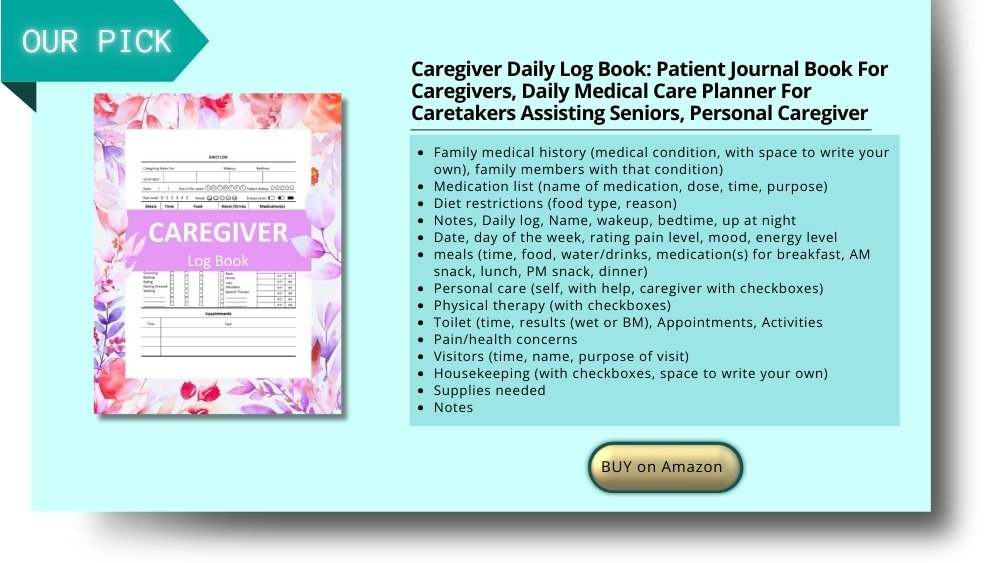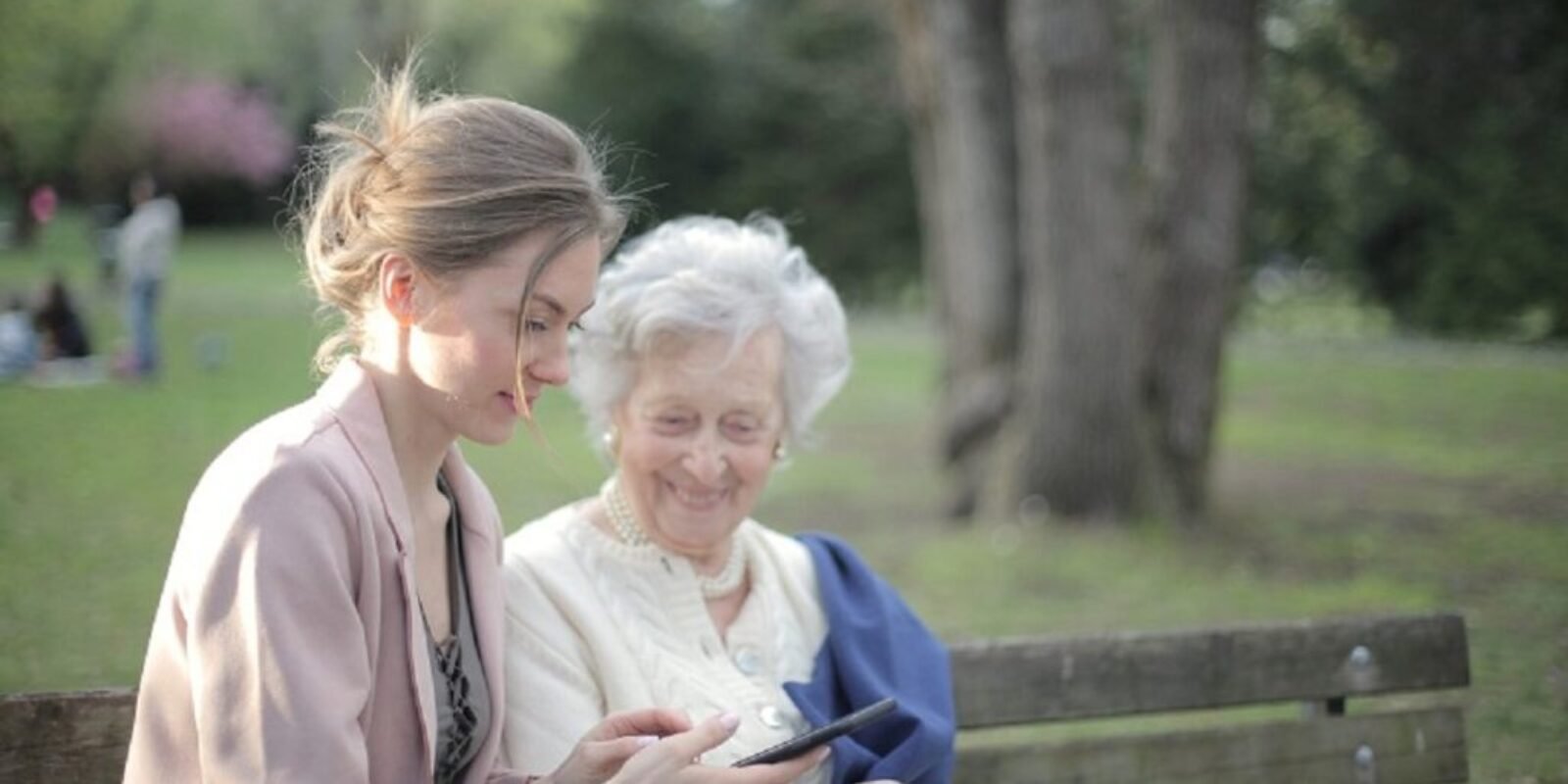Last Updated on May 27, 2025 by Rose Ann Palac
Finding the right caregiver for your loved one can be a life-changing decision that profoundly impacts their quality of life. With approximately 53 million Americans now providing care for an aging relative or friend, understanding how to navigate this process is more important than ever.
This comprehensive guide offers a thoughtful six-step roadmap to help you select a caregiver who not only meets your loved one’s practical needs but also enhances their emotional well-being. From assessing specific care requirements and establishing a realistic budget to gathering trusted recommendations and conducting effective interviews, we’ll walk you through each crucial phase of this journey.
Whether you’re considering agency-based care or hiring independently, this guide provides the essential knowledge and practical tools you need to make a confident, informed choice that brings peace of mind to both you and your loved one.

Choosing A Caregiver: 6-Step Roadmap to Quality Senior Living
Considering in-home caregiver services but unsure of where to start? Join us as we delve into the essence of choosing a caregiver, unraveling the threads that weave a tapestry of trust and compassion, illuminating the path towards a life lived with joy, respect, and grace. Together, let’s navigate the realms of senior care with clarity, purpose, and above all, with love.
In situations like these, family members frequently step up to offer care and assistance. Living with family members can be a wonderful choice for seniors, as it guarantees they will have consistent companionship and support through in-home caregiver services.
Family caregivers are crucial in supporting loved ones by handling tasks like cooking, cleaning, giving medication, and driving to appointments. In-home caregivers offer emotional support and companionship to seniors without family care, providing personal care and medication reminders.
In-home caregivers offer companionship and emotional support, reducing loneliness for seniors. They work part-time or full-time, providing care during the day, overnight, or weekends.
Choosing a caregiver helps seniors stay at home with the necessary support for independence and quality of life. It offers peace of mind for both seniors and their families, ensuring their loved ones are well cared for in a familiar environment.
Below are a few tips on choosing a caregiver with the right background, expertise, and experience for your loved one.
Prefer to listen rather than read?

Step 1: Assess Your Loved One’s Needs
When choosing a caregiver for a loved one, you should first assess their specific needs and preferences to ensure the best possible assistance. Begin by compiling a comprehensive list that outlines the precise tasks required. These may range from meal preparation and housekeeping to transportation and recreational activities.
Consider any physical or emotional limitations and health considerations that may significantly impact the type and level of care needed. Having a written list of tasks and responsibilities allows you to accommodate varying levels of care and scheduling preferences.
Whether your loved one requires occasional support for a few hours or days, or continuous assistance with live-in caregivers, in-home care must adapt to suit the circumstances. For example, note the times of day when your loved one requires assistance, as this will help you assess and coordinate schedules effectively. Also, factor in any personal preferences and requests of the individual receiving care when choosing a caregiver.

Step 2: Establish a Budget
When choosing a caregiver, it’s essential to understand the financial implications involved in hiring one. The expenses can vary depending on the level of care required, the caregiver’s experience and qualifications, and the specific needs of the individual receiving care.
In most cases, the costs can be substantial and may exceed what the average person can afford for continuous, 24/7 care. It’s important to carefully assess your budget and financial resources before committing to hiring a caregiver.
You may want to explore different options such as long-term care insurance, Medicaid, or other financial assistance programs that can help offset the costs of caregiving. Additionally, some families may choose to pool their resources or seek help from community organizations to cover the expenses of hiring a caregiver.
By doing so, you can establish clear bounds for what you can afford and make informed decisions regarding the type and extent of care you can provide. This proactive approach ensures a practical understanding of your financial constraints and helps you prioritize options that are within your budgetary considerations.
Some insurance policies cover at least part of in-home care services. Understanding the extent of insurance coverage for in-home care, the specific services that are included in the coverage, and the necessary steps to access this coverage could help you manage the cost of in-home care.

Step 3: Gather Advice and Recommendations from Trusted Sources
When choosing a caregiver for your loved one, it’s crucial to consider input from a variety of sources. Family and friends can offer valuable insights based on their personal experiences with caregivers. Community organizations specializing in elder care or support services may also be able to provide recommendations or connect you with reputable caregivers in your area.
Additionally, medical providers such as doctors, nurses, or social workers can offer professional advice and recommendations based on their knowledge of your loved one’s specific care needs. Family and friends can give you firsthand accounts of their interactions with caregivers, helping you gauge the quality of care provided and the level of trustworthiness.
Community organizations often have established relationships with caregivers and can recommend individuals or agencies that have a good reputation within the community. Medical providers can provide valuable input based on their expertise in assessing care needs and matching patients with suitable caregivers.
Get personal referrals for caregivers to assess their strengths and suitability for your loved one. Consult various sources for a comprehensive understanding of caregiver options to make an informed decision based on your loved one’s needs.
Each source of recommendation brings a unique perspective, helping you to weigh the pros and cons in choosing a caregiver for your specific situation. These individuals and entities can offer insights based on personal experiences or professional knowledge, providing good referrals and advice to guide you through the caregiver selection process.
Using these diverse sources for recommendations equips you with a wealth of information and support, permitting an informed and successful decision-making process when you finally select an in-home caregiver for your loved one.

Step 4: Choose Between an Agency or an Individual
In choosing a caregiver, you will need to choose between paying for the services of an agency or conducting the hiring process independently. Choosing an agency is the more convenient option. Agencies typically offer a pool of pre-screened caregivers, freeing you of the task of vetting potential candidates.
Agencies also handle administrative tasks like payroll and taxes, offering additional peace of mind. But all this convenience comes at a cost, as agency fees tend to be higher due to their overhead expenses.
On the other hand, hiring a caregiver independently can be more cost-effective and allows for greater flexibility in selecting a caregiver according to your loved one’s specific needs and preferences. This route requires time and effort as you will have to screen candidates, conduct background checks, and manage administrative aspects like payroll and taxes independently.
Regardless of the chosen path, you will need to write a detailed job description outlining what you expect and what your loved one requires. Clearly stating personal needs – and those of a loved one – ensures prospective caregivers have a clear understanding of the role.

Step 5: Conduct Interviews
When interviewing a potential caregiver, it is crucial to strike a balance between being polite and assertive. This delicate balance will ensure that you can gather all the necessary information while also maintaining a respectful and professional demeanor throughout the interview process.
It is important to remember that choosing a caregiver for yourself or a loved one is a significant decision, so it is essential to ask tough questions to ensure that they are the right fit for the role. One important aspect to inquire about is the caregiver’s background and experience.
Beyond simply inquiring about their professional experience and employment history, it’s important that you have some idea as to their personal background. This includes any relevant experiences or challenges they may have faced in the past.
To thoroughly assess a candidate, consider asking these specific questions:
- Why are you interested in this position?
- Can you tell me a little about yourself?
- Where have you worked before and what were your duties?
- What is your favorite kind of client? Are there any people you feel uncomfortable working with?
- Is there anything in the job description that you are uncomfortable doing?
- How do you deal with someone living with memory problems? Can you provide an example?
- Describe your experience making meals for other people.
- How do you handle people who are angry, stubborn, and/or fearful?
- Do you have a car, and would you prefer to drive your own car or ours while transporting? (Ensure you see proof of insurance and a current driver’s license.)
- What is your experience transferring someone out of bed or a chair and into a wheelchair?
- What is your availability in terms of days and hours?
By asking tough questions about their background and suitability for the role, you can gather important information to make an informed decision. Remember, finding the right caregiver is a significant decision, so don’t be afraid to ask tough questions to ensure that you find the best match for yourself or your loved one.

Step 6: Hire Your Chosen Caregiver
The last step in choosing a caregiver is the hiring and follow-up process. Discuss your choice of caregiver with both the loved one who will receive care and other family caregivers.
This ensures that everyone’s perspectives and preferences are considered, encouraging a collective decision-making process. Once a decision is made, you will need to finalize hiring arrangements with the chosen individual or agency.
You may need to follow up even after you have hired the caregiver. This involves regularly checking in to ensure that the caregiver’s performance is in keeping with expectations and that the care recipient is comfortable and satisfied with the arrangement.
You should remember, too, that there may be an adjustment period as the caregiver and the loved one become acquainted with each other, which is a normal part of the transition process.
There should be open and honest communication when addressing any issues or concerns that may arise during this adjustment period. By smoothing conversations between the family, the loved one receiving care, and the caregiver, you can address potential issues promptly and effectively, leading to a positive and supportive caregiving environment.

How to Create a Care Plan for Your Loved One
Crafting a personalized care plan for your loved one involves keen attention to detail and meticulous organization. Here’s a guide to help you get started:
Understand the Basics
A care plan outlines your loved one’s care requirements and provides a roadmap for caregivers, whether through an agency or an independent provider. It’s essential for aligning expectations and ensuring comprehensive care.
Identify Care Requirements
First, assess the specific needs of your loved one:
- Health Conditions: Document any medical conditions and necessary treatments.
- Medication: Note all prescriptions, with dosages and administration schedules.
- Daily Living Activities (ADLs): Identify areas needing assistance, like bathing or dressing.
- Preferences and Hobbies: Include personal interests to enrich their quality of life.
Define Caregiver Responsibilities
Clearly outline the duties expected of caregivers, such as:
- Home Chores: Specify any housekeeping tasks, if required.
- Caregiving Schedule: Establish consistent timeframes for care.
Include Contact Details
Ensure the plan includes:
- Healthcare Providers: List primary doctors and specialists.
- Family Contacts: Provide key family member information.
- Emergency Contacts: Detail whom to reach in urgent situations.
Beyond Mere Assistance
Choosing a caregiver is a decision of great significance. Your choice will have a direct impact on the well-being and quality of life of the individual receiving care. sBeyond mere assistance with daily tasks, caregivers perform a crucial function in providing emotional support, companionship, and maintaining a sense of dignity for those in their care.
Choosing a caregiver who is not only skilled and experienced but also compassionate and trustworthy ensures that your loved one receives the highest standard of care. Trust and safety are, of course, important considerations. The caregiver will have a significant level of responsibility for the health and safety of your loved one.
The right kind of personality, communication style, and values help to build a positive and nurturing relationship between the caregiver and care recipient. This enhances both the comfort and emotional well-being of your loved one.
The right caregiver brings peace of mind to family members, who know that their loved one is in capable and caring hands.
FAQ: In Home Caregiver Services
- What information should be included in a care plan?
- A well-rounded care plan ensures consistent and effective care by including key elements such as a detailed daily schedule, clearly defined caregiver duties, and a comprehensive list of health conditions and medications. It should also contain personal preferences, emergency contacts, and healthcare provider information. Regular reviews help keep the plan adaptable to changing needs, ensuring it remains a practical tool for quality care.
- What documentation and references should I request from a potential in-home caregiver?
- Hiring an in-home caregiver requires thorough documentation and references to ensure a safe and informed decision. Request essential documents like a government-issued ID, proof of work eligibility, professional licenses or certifications, and a signed waiver for a background check.
- Verify their work history through at least two professional references, and include one personal reference for insight into their character. Collecting these details not only confirms the caregiver’s qualifications but also establishes a strong foundation for a trustworthy caregiving relationship.
- What should be included in an in-home care contract?
- An in-home care contract is essential for establishing clear expectations and responsibilities between the caregiver and care recipient. Include personal details of all parties, a detailed job description, and financial arrangements such as wages, benefits, and reimbursement policies.
- Outline conduct standards, recordkeeping requirements for daily updates or logs, and grounds for termination, along with any severance terms. Finalizing the contract with signatures and, if possible, notarization creates a legal roadmap that defines roles, resolves disputes, and ensures legal protection for all involved.
- How can changes in the loved one’s condition be managed?
- It is vital to keep all parties informed about any changes in the loved one’s condition. This helps maintain the quality of care provided as needs evolve. Regular communication, including scheduled updates and open dialogue, allows for necessary adjustments to the care plan. Adaptability is key; as the loved one’s condition changes, so too should the approach to care, ensuring continued support for their specific needs.
- What are the responsibilities when hiring an independent caregiver?
- When you hire an independent caregiver, you become their employer. This means you’ll need to screen candidates, conduct background checks, and manage administrative aspects like payroll and taxes independently. You’ll also be responsible for creating a detailed job description outlining what you expect and what your loved one requires.
- While this route requires more time and effort, it can be more cost-effective and allows for greater flexibility in selecting a caregiver according to your loved one’s specific needs and preferences.
- How should communication be maintained with caregivers and agencies?
- It’s crucial to communicate regularly with both caregivers and the agency. This ensures that everyone is aligned and informed about the care process and any necessary adjustments.
- Who can assist me with finding an in-home caregiver?
- When seeking an in-home caregiver, various sources can provide valuable assistance. Family and friends offer insights based on personal experiences, while community organizations specializing in elder care may connect you with reputable caregivers.
- Medical providers, such as doctors or social workers, can recommend based on their expertise in assessing care needs. Each source brings a unique perspective, helping you make an informed decision that best suits your loved one’s specific requirements.
REFERENCES
- AARP and S&P Global. (2024, May). New U.S. Workforce Report .
- Guardian’s 12th Annual Workplace Benefits Study. (2023). Standing Up and Stepping In.
- Alzheimer’s Association. (2024, March). 2024 Alzheimer’s Disease Facts and Figures report.
- University of Michigan National Poll on Healthy Aging. (2024, August). More Than 1 in 4 Americans Over 50 Are Now Caregivers.
- Care.com. (2024, July). Daily senior caregiver checklist: What to include and why it’s a game-changer.
- Institute on Aging. (2018). Tips On Choosing the Right Caregiver For an Older Loved One.
- Family Caregivers Online. (2023). How to Create a Caregiver Duty Checklist.
Disclaimer
The content provided on MySeniors.World is for informational purposes only and is not intended as either financial or medical advice. Always consult a qualified professional before making any investment or health-related decisions.
Posts may contain affiliate links, meaning we earn a commission – at no additional cost to you, if you click through and make a purchase. Your support helps us continue providing valuable content.



